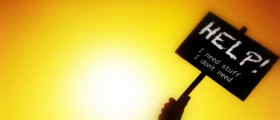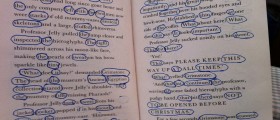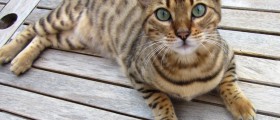
Simply put, a compulsive disorder is "irrational force", or a habit, more like, that forces a person to repeatedly do something they do not want to do, as if it were a ritual.
What does having OCD feel like?
A person suffering from a compulsive disorder feels as if the portion of the thoughts that compel him or her to go through the ritual are not their own, and thus feels as if there is nothing he or she can do about them – whereas in actuality, the person is so used to the compulsive habit he or she does not for one moment even consider he or she's got the ability to stop – subconsciously treating it as if it were an external compelling force that one must yield to in order to be allowed to remain doing something else, sometimes completely unrelated to the habit.
The victims of OCD often feel grave fear of not fulfilling the obsession, even though it is logically completely unrelated to the event they fear may come to pass if they ever stop. For instance, there was a lady who liked the safety of her father after he nearly died to checking her whether her car was locked or not repeatedly so many times she had to change the locks every half a year or so – whilst all the while not once considering to stop and think about it rationally.
Another scenario may involve reenacting a certain event one is emotionally linked to.
How does one put an end to OCD?
One of the techniques used to fight OCD is the so called fast phobia technique; this technique is not solely limited to phobias. The goal of this treatment is to allow the subject to no longer feel compulsion around objects that used to be a part of his or her OCD.
Another method is the compulsion blowout method which destroys the submodalities (those are the codes by which a person makes sense of one's experiences) so that they no longer feel compelled to go through their ritual whilst around them.
Even though it may not sound like the best of ideas, confrontation with a lack of the expected consequences of not yielding to the habit is another way of dealing with OCD. An example of that was a man who felt the urge to run indoors whenever he heard a helicopter fly by, until he was confronted with the scenario whilst sitting on a picnic with his girlfriend and nowhere to run.
Various techniques can be combined to suite the particular subject.
- www.nhs.uk/conditions/obsessive-compulsive-disorder-ocd/
- www.nhs.uk/video/pages/ocd.aspx
- Photo courtesy of amenclinicsphotos ac by Flickr: www.flickr.com/photos/125892716@N05/14419489878/







-Causes,-Symptoms,-Diagnosis-And-Treatment_f_280x120.jpg)









Your thoughts on this
Loading...